
CGissemann/iStock/Getty Images
Pickling was developed as a means of food preservation. Most pickling occurs in an acidic solution, such as vinegar, or a saltwater solution, called brine. Although the term "pickling" may bring to mind pickled cucumbers, pickling applies to variety of foods, including meats. Pickling offers several advantages over fresh storage, particularly with economic benefits. However, if you choose to pickle foods, you should carefully study preservation techniques. To prevent illness, you must strictly control or eliminate the bacteria in pickled products.
Food Preservation
The primary advantage of pickling is food preservation; pickling prevents spoilage and greatly extends shelf life. Pickling as food preservation was particularly important in agricultural societies before household refrigeration. However, even with refrigeration, many foods last only days, weeks or months; pickled foods often last several years. In this respect, few preservation and storage methods compare to pickling. Those that rival pickling include canning, drying and freezing.
Reduced Food Storage Costs
Freezing is the most common long-term storage food storage method. According to a report from Colorado State University, canning and pickling generally are more economical than freezing. Whereas freezing food requires a continuous supply of electricity, canned and pickled products remain stable at room temperature. Note that the economic advantages of pickling vary according to the type of ingredients that you are pickling, the quantities produced during a pickling session and cost of the containers or equipment.
Flavor and Culinary Applications
Although born of a necessity for preservation, pickling produced global traditions that continue to affect the culinary arts. Prized for their unique flavors and textures, pickled foods frequently appear as both condiments, seasonings and integral ingredients in prepared dishes. For example, the brining and preservation process of corned beef is a type of pickling, as is the fermentation process that produces sauerkraut. These products are no longer solely produced for preservation, but primarily for their culinary merit.
Health Benefits and Concerns
Many fermented foods are good sources of nutrients, including vitamins, amino acids and healthy bacteria. According to the Gatorade Sports Science Institute, the sodium content in large quantities of pickle juice could facilitate hydration and potentially reduce muscle cramps after excessive sweating. Despite potential benefits, you should only consume high-sodium products in moderation.
Related Articles
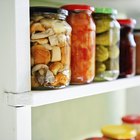
Are Pickled Vegetables Allowed on a Raw ...

Types of Biodegradable Products

Processed Food Definition
Can You Freeze Capers?
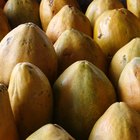
List of Foods That Are Commonly ...

Importance of a Soap Detergent

Effectiveness of Non-Alcohol Hand ...

How to Vacuum Seal Jars
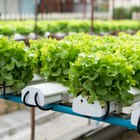
Hydroponic Vegetable Nutrients Vs. ...

Fresh Vs. Canned Foods
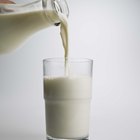
How Does Flash Pasteurization Work?

What Are the Dangers of Sauerkraut?

Can You Freeze Spices & Herbs for ...
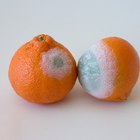
Fruits & Vegetables: Carbon Dioxide ...

Uses of Saltpeter in Food

Dimethicone Hazards

List of Biodegradable, Every Day ...

How to Pickle Brine Sausage
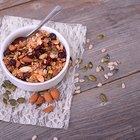
Does Freeze-Drying Affect Nutrition?

Potassium Permanganate to Wash ...
References
Writer Bio
Based in Hawaii, Shane Grey began writing professionally in 2004. He draws on his construction experience to write instructional home and garden articles. In addition to freelance work, Grey has held a position as an in-house copywriter for an online retailer. He holds a Bachelor of Arts in theater arts from Humboldt State University.
Photo Credits
CGissemann/iStock/Getty Images